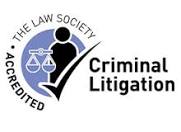Sahota & Sahota Solicitors have considerable experience in representing clients in relation to Confiscation Proceedings, Cash Seizure and Forfeiture Proceedings. We are often instructed to take over conduct of cases after conviction further to the commencement of confiscation proceedings pursuant to the Proceeds of Crime Act 2002. This is due to our excellent reputation in this highly specialised area.
Sahota & Sahota Solicitors are one of the few firms that have day-to-day experience of dealing with the following:
- Confiscation Proceedings (POCA)
- Restraint Orders
- Forfeiture Proceedings
- Cash Seizures (under Proceeds of Crime Act 2002 and Police and Criminal Evidence Act 1984)
- Enforcement proceedings.
We are fortunate enough to have worked with leading barristers and the best forensic accountants and pride ourselves on first class client care and advice tailored to your specific case and requirements.
Cash Seizure and Forfeiture
Criminal or civil asset recovery orders made under the Proceeds of Crime Act 2002 can involve measures including confiscation, restraint, receivership, cash seizure or civil recovery or property freezing orders. The minimum amount able to be seized under Section 294 of the Proceeds of Crime Act 2002 was lowered from £10,000 to £5,000 on the 16 March 2004. The minimum amount able to be seized was reduced from £5,000 to £1,000 with effect from the 31 July 2006.
Case Seizure under Police and Criminal Evidence Act 1984 (PACE)
Amounts of less than £1,000 can also be seized, for their evidential value, under section 19(2) or (3) and 22(4) of PACE, if the suspect is arrested for money laundering or in relation to other offences where the money can be shown to be evidence of those offences, for example, a dishonesty offence.
A distinction has to be made between grounds for seizure:
- Section 19 subsections (2), (3) and (4) allow an officer who is lawfully on any premises to seize evidence or anything obtained in consequence of the commission of an offence in order to prevent it being concealed, lost, damaged or destroyed
- Section 22(2)(b) allows retention of anything seized under section 19 in order to establish its lawful owner, where there are reasonable grounds for believing that it has been obtained in consequence of the commission of an offence
- Section 22(4) provides that nothing seized under section 19 may be retained for the purpose of a criminal investigation, for use at trial or for a forensic examination, if a photograph or copy would be sufficient for that purpose. This only applies in these limited circumstances set out in section 22(2)(a)
The Police do not take it upon themselves to return your property if it falls under section 22(4) of PACE. We routinely review evidence seized by the police and make requests quoting the relevant legislation and case law
Being subject to a POCA cash seizure and forfeiture action can be a stressful experience. We usually act for individuals and companies affected by the cash seizure or forfeiture on a privately paying basis.
We appreciate that costs will be a major concern for clients so we will keep clients regularly informed of the costs to date, and will provide estimates for each stage of work we plan to undertake. We are often able to provide a fixed fee quote for this type of work.
When it comes to cash seizure, the first thing to establish whether or not it is ‘recoverable property’. Recoverable property is property obtained through unlawful or criminal conduct. A ‘Form A’ must be completed at the scene of seizure and served on the person from whom the cash is seized together with a copy of the ‘Receipt For Seized Cash’. The Form A must include the time and place of seizure, the Magistrates’ Court at which the application for further detention will take place and finally the reason for seizing the cash. If your money was seized when it was in the possession of a third party, you will be eligible to make a claim for it provided you can prove ownership as well as prove the money is not recoverable as per the definition within Section 304(1) of Proceeds of Crime Act 2002.
Remember, the Magistrates’ Court can order the detention of cash for up to 2 years. This can cause significant hardship and difficulties if you require the funds for personal needs or for your business.
Pick up the phone to speak to a Solicitor to discuss your case now on 01162 555 155 or complete the Call Back form to the right.
Free Initial Advice
All initial advice calls or meetings are free and without any obligation. Initially we will ask you to provide details about the case and we will ascertain any issues which may be of relevance. Once we have done this we will advise you about the issues and will propose a strategy as to how we will best deal with your case, in order to achieve the best possible outcome.
If you are affected by cash seizure or forfeiture proceedings (often on entering the UK at an airport or seaport) you will need to speak to an solicitor with expertise in the field immediately who can advise you in relation to the legality of seizure, advise you of the extent of your rights to challenge the seizure and represent you before the Court in order to apply for the funds to be returned.
Call and speak to our Confiscation department today on 0116 2555 155.


